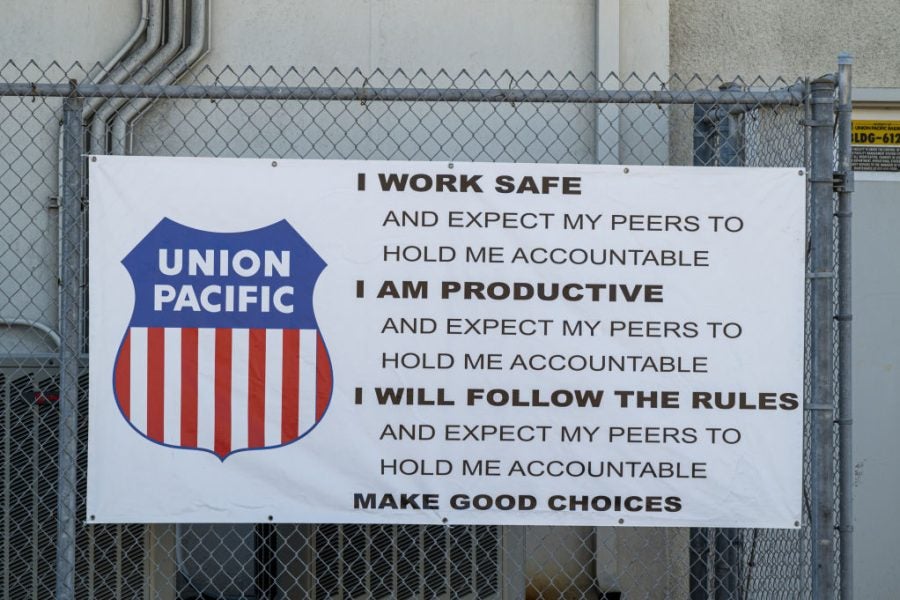
On Friday, President Biden signed a bill blocking freight rail workers from going on strike.
Earlier this week, he issued a statement calling on Congress to pass the legislation. The bill adopts an agreement between railroad workers and operators, but it fails to include the seven days of paid sick leave many workers were demanding.
Workers in four unions who opposed the agreement planned to strike on December 9 if the provision hadn’t been included, but the bill now makes the strike illegal.
Stopping freight travel during the busy holiday season is….kinda a big deal. Which is precisely why workers planned it.
Here’s what you should know about the bill and the criticism Biden and Congress are facing:
Rail companies only wanted to provide one day of sick leave. This was a deal breaker for four unions who were negotiating contracts.
While workers have a pay increase and other improvements in their agreement, which Biden referenced in his statement on Monday, the lack of adequate paid leave was a sticking point. Rail companies currently provide none; the agreement they were negotiating would offer one.
While it’s holiday shopping season, it’s also cold and flu season, and rail workers will barely have time to recover without the threat of being penalized if they need to call off work with short notice or tend to a sick family member.
But it’s not just a matter of taking off for the common cold. In California, rail workers were twice as likely to die from COVID-19 compared to other workers, one policy expert noted.
The U.S. government stepped in because railroad labor issues are governed by federal labor law
A federal law requires government intervention before a strike can happen. President Biden stepped in with negotiations in September. He brokered a tentative agreement to avoid a strike before the midterms, and the unions have individually voted whether to accept the terms since then. Of the 12 unions, eight approved the terms, which only provided for one day of sick leave.
Biden faced criticism from progressives in Congress and labor advocates for urging federal legislators to adopt the agreement without the week of sick leave.
As one rank and file rail worker, Hugh Sawyer, told CNN, “Joe Biden blew it. He had the opportunity to prove his labor-friendly pedigree to millions of workers by simply asking Congress for legislation to end the threat of a national strike on terms more favorable to workers. Sadly, he could not bring himself to advocate for a lousy handful of sick days. The Democrats and Republicans are both pawns of big business and the corporations.”
A workaround some Congressmembers rallied for was to have a bill blocking the strike and a separate bill requiring sick leave. While the House approved the separate sick leave bill, the Senate rejected it on Thursday.
Rail companies are generating billions of dollars of profits. Union Pacific had a record year.
After the Senate vote rejecting the sick leave proposal, Teamsters President Sean O’Brien criticized the move noting, “rail carriers make record profits. Rail workers get zero paid sick days. Is this OK? Paid sick leave is a basic human right. This system is failing.”
Indeed, while the 115,000 workers affected by the bill will not get the terms they have long advocated for, one rail company–Union Pacific— earned $6.5 billion in profits last year, which they say is their best year ever in profits.







